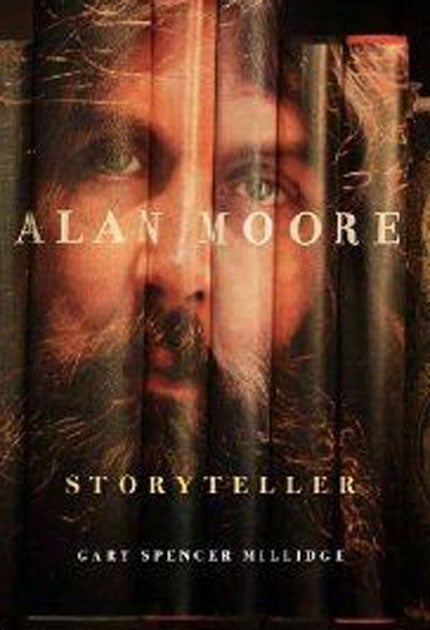Alan Moore: Storyteller, By Gary Spencer Millidge
Moore is no ordinary gentleman

Your support helps us to tell the story
From reproductive rights to climate change to Big Tech, The Independent is on the ground when the story is developing. Whether it's investigating the financials of Elon Musk's pro-Trump PAC or producing our latest documentary, 'The A Word', which shines a light on the American women fighting for reproductive rights, we know how important it is to parse out the facts from the messaging.
At such a critical moment in US history, we need reporters on the ground. Your donation allows us to keep sending journalists to speak to both sides of the story.
The Independent is trusted by Americans across the entire political spectrum. And unlike many other quality news outlets, we choose not to lock Americans out of our reporting and analysis with paywalls. We believe quality journalism should be available to everyone, paid for by those who can afford it.
Your support makes all the difference.Writer, artist, historian, critic, anarchist, autodidact, singer-songwriter, screenwriter, performance artist, magician, snake-god worshipper, Northampton celebrity, global cult figure. Alan Moore might seem too multi-faceted to be called only a "storyteller". But weaving words into stories to work their spells on his reader's consciousness is central to his practice. For Moore's 50th birthday, in 2003, Gary Spencer Millidge co-edited an anthology in which he collaged a 12-page biography of Moore, in strip form. Here, Millidge has over 300 pages in which to examine Moore's emergence from underprivileged childhood and expulsion from school for drug-dealing to a remarkable blossoming as the most relentlessly inventive writer in contemporary comics and beyond.
The most intriguing chapters open and close this monograph. "Embryonic Genius" reveals Moore's early years. His first published work, in 1969, was an advertisement for a London science-fiction bookshop, Dark They Were And Golden-Eyed. It was followed by poetry magazines, Arts Lab performances and strips for the music weekly Sounds. Too slow an artist, he found his calling as a comics writer.
His trajectory from 2000AD, Warrior and other British titles to Watchmen, V for Vendetta, From Hell and The League of Extraordinary Gentlemen is covered methodically. Millidge's accessible if sometimes un-incisive commentary and generous observations from Moore accompany reproductions from each comic.
Millidge inserts a few rarities, notably a V script "rejected" by artist/co-creator David Lloyd and a huge handwritten chart mapping Moore's cast across 12 issues of Big Numbers. In a revelatory penultimate chapter, we glimpse Moore's creative process. As a comic artist, he "thumbnails" compact, crude page layouts and scrawls script notes, comprehensible only to him, into notebooks. So we see that his notoriously meticulous scripts, of which several extracts are reproduced, derive from these preparatory visualisations, unseen by most of his artistic collaborators.
Moore eschews America's comic and film industries to pursue personal projects, from the underground magazine Dodgem Logic to multimedia events. Of the many stories he has told, his ongoing odyssey of self-creation is almost certainly the most fantastical.
Join our commenting forum
Join thought-provoking conversations, follow other Independent readers and see their replies
Comments